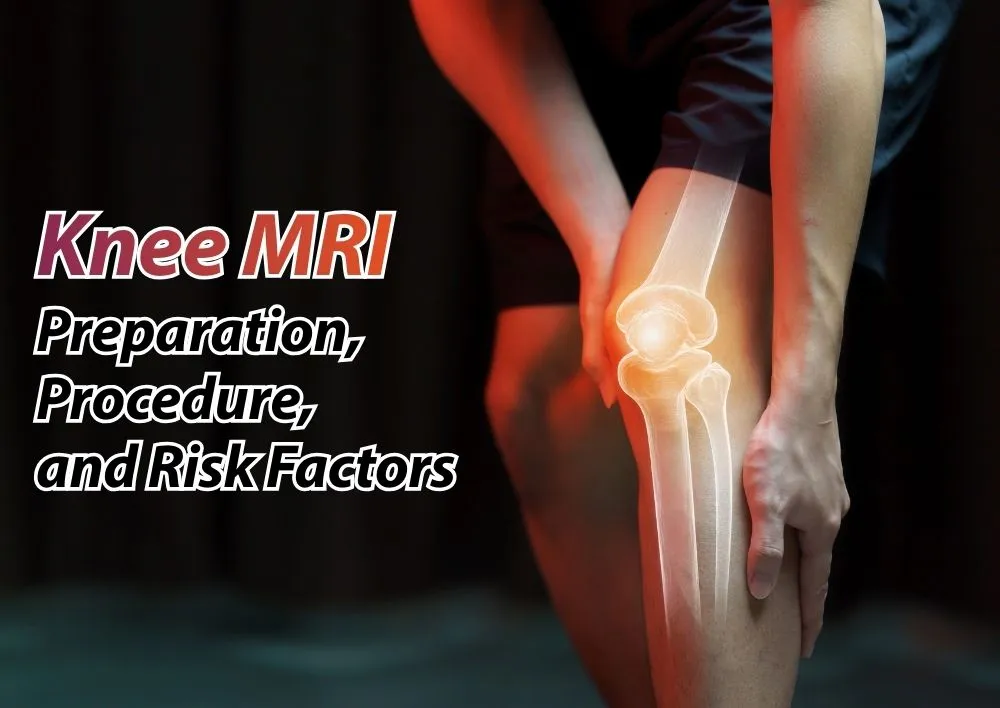Hernia: What it is, Types, Symptoms, Causes & Treatment
Hernia is a medical condition affecting the abdomen or groin, where an organ or tissue protrudes through an abnormal opening in connective tissues or surrounding muscles. This can result in a visible lump and may cause pain or discomfort.
For expert Hernia care and lasting relief, choose Miracles Apollo Cradle / Spectra. Our team of renowned general surgery doctors in Gurgaon are skilled in cutting-edge techniques like minimally invasive laparoscopy. They tailor personalized treatment plans to your needs. Whether it's open surgery for complex cases or a focus on speedy recovery with minimal scarring, we prioritize your comfort. Schedule your consultation today to experience the confidence and care only Miracles Apollo Cradle / Spectra can provide.
In this blog post, we will discuss the various types of Hernias, their symptoms, causes, and effective treatment options.
What is Hernia?
Hernia is a fairly common condition, affecting millions of people worldwide. It occurs when an organ or tissue protrudes through any weak spot in the muscle or surrounding tissue. It appears as a bulge in the abdomen or groin. While some Hernias cause mild pain and discomfort others can lead to severe pain and complications if left untreated.
What are the Common Locations of Hernia?
You may get a Hernia in different locations in your body:
-
In the lower chest through the diaphragm.
-
In the groin through the wall of the lower abdomen.
-
Along the front midline of the abdomen.
-
Through a former abdominal surgery incision.
What are the Types of Hernias?
Some common types of Hernias are:
-
Inguinal Hernia: It is one of the most common types of Hernias in men. It occurs in the groin area when part of the intestine bulges out through the inguinal canal. The inguinal canal is a natural weak spot in the abdominal wall. An inguinal Hernia causes a noticeable bulge that may increase in size when standing or straining. It is characterized by pain, discomfort, and a dragging sensation. The treatment of inguinal Hernia typically involves minimally invasive surgery to repair the weak spot and push the tissue back into place.
-
Femoral Hernia: It is less common than inguinal Hernias. It develops when part of the intestine pushes through the femoral. It is a canal( a passage) in the upper thigh. The femoral Hernia generally presents as a bulge near the top of the thigh. It causes pain while walking or prolonged standing. Surgical repair is performed to treat it.
-
Hiatal Hernia: This type of Hernia occurs when part of the stomach bulges out through the diaphragm. The diaphragm is the muscle separating the chest from the abdomen. The hiatal Hernia can cause symptoms such as heartburn, acid reflux, and chest discomfort, especially after eating or lying down. Small and asymptomatic hiatal Hernia requires medical treatment but the larger ones may require surgery to prevent complications.
-
Congenital Diaphragmatic Hernia (CDH): Unlike other Hernias, CDH is congenital. They present at birth due to a partially formed diaphragm. This allows abdominal organs such as the intestines and stomach, to move up into the chest cavity. It affects the development of the lungs and causes breathing difficulties in newborns. Surgery is recommended after the birth to repair the diaphragm.
-
Incisional Hernia: This type of Hernia develops through scars from previous abdominal surgeries. The weakened muscles around the scar allow tissue to bulge through. An incisional Hernia is characterized by pain and discomfort. General surgeons prefer to recommend surgical treatment for repairing the weak spot.
-
Umbilical Hernia: The umbilical Hernia is common in infants. It occurs when part of the intestine bulges through the belly button. Umbilical Hernia resolves on their own within the first few years of life. However, the Hernia that persists beyond childhood may require surgical intervention.
-
Ventral Hernia: Similar to incisional Hernias, ventral Hernias occur through any weak spot in the abdominal wall, not just surgical scars. They can develop anywhere between the ribs and pubic bone and typically require surgical repair to prevent further enlargement or complications.
-
Perineal Hernia: It is the rarest type of Hernia that occurs through the pelvic floor muscles. It presents as a bulge near the rectum or anus. Perineal Hernia is characterized by pain, discomfort, and difficulty with bowel movements. To prevent complications, Surgical repair is typically recommended.
What are Hernia Symptoms?
The symptoms of a Hernia vary depending on the type and severity of the condition.
However, some common signs include:
-
Visual bulge
-
Pain and discomfort in the affected area
-
Redness
-
Discoloration, or tenderness of the bulge
-
Nausea, vomiting, fever, chills
-
Not able to have a bowel movement or pass gas
-
Crying in infants
-
Swelling at the navel
-
Bulging around the scar from a previous injury or surgery
-
Chest pain
-
Difficulty swallowing
-
Heartburn
-
Acid reflux
-
Pain in the upper thigh while walking or prolonged standing
What are the Causes of Hernias?
Several risk factors contribute to the formation of Hernias including:
-
Weakness in the Abdominal Wall: Weakened muscles due to congenital factors, age, or genetics can contribute to Hernia formation.
-
Increased Intra-Abdominal Pressure: Constipation, Heavy weight lifting, chronic coughing, obesity, etc. can increase the pressure in the abdomen, increasing the risk of developing a Hernia.
-
Pregnancy: During pregnancy, women experience pressure on the abdominal muscles. This strain can lead to abdominal or groin Hernias.
-
Smoking: The use of tobacco may weaken connective tissues. It makes people more sensitive to Hernias.
What Risk Factors Contribute to Getting a Hernia?
Certain factors can increase your chances of experiencing a Hernia including:
-
Heavy weight lifting
-
Prolonged standing
-
Problems in the reproductive system
-
Persistent cough
-
Chronic Allergies
-
Pelvic or Abdominal surgery
-
Pregnancy
-
Chronic obesity
-
Premature birth
-
Cystic fibrosis
-
Chronic constipation
-
Connective tissue disorder
-
congenital hip dysplasia
-
The problem in the urinary system
How is Hernia Diagnosed?
-
The surgeon will ask about your medical history, family history, and symptoms.
-
Then they will conduct a physical examination to feel the bulges.
-
In some cases to confirm the diagnosis, they will conduct imaging tests including ultrasound, CT, or MRI scan.
-
In rare cases, they will recommend some specialist tests including barium swallow and endoscopy.
Once the diagnosis is done, the surgeon will decide the best possible treatment plan for you.
What is the treatment for Hernia?
Not all types of Hernias require medical or surgical treatment. Some go away on their own. Others may require medical or surgical intervention. The treatment for a Hernia varies depending on its symptoms and severity including:
-
Watchful Waiting: Small and asymptomatic Hernias may not require immediate treatment. Your surgeon may ask for regular monitoring.
-
Lifestyle Modification: Weight management, quitting smoking, and avoiding heavy weight lifting can help relieve the symptoms or prevent Hernia.
-
Medications: In the case of hiatal Hernias, your doctor may prescribe over-the-counter medications to help manage symptoms.
-
Surgery: In case of chronic, larger, and symptomatic Hernias, your doctor may recommend surgical intervention to repair the opening.
-
Open Surgery: It is a traditional approach that involves an incision in the skin and muscle wall near the affected site. The surgeon will examine the bulging tissue, gently reposition it to its original place, and strengthen the weak muscles with stitches or an artificial mesh patch. Open surgery is generally recommended in complex cases to repair larger Hernias.
-
Laparoscopic Surgery: It is a minimally invasive approach. To perform this surgery, small incisions are created in the abdomen. Through the incisions, the surgeon will insert thin instruments and a camera to view the Hernia internally. Like open surgery, the bulging tissue is repositioned and the weak spot is strengthened with a mesh patch. Laparoscopic surgery offers faster recovery, minimal pain, and smaller scars.
-
Robotic-Assisted Surgery: It is an advanced surgical procedure. To perform a robotic-assisted surgical procedure, the surgeon will use a robotic system for repair. This surgical procedure offers benefits such as improved accuracy and less time.
With treatment techniques and compassionate care, you can find lasting relief from Hernias.
Conclusion:
Effective Diagnosis and Management of Hernias rely on a clear understanding of the types, symptoms, and causes. If you are experiencing symptoms of a Hernia or suspect to have a Hernia, it is important to consult with a general surgeon. They will help with proper diagnosis and personalized treatment plans for quicker recovery.
Ready to experience the miracle of a pain-free future? Don't wait any longer. Schedule your consultation with the best general surgeons in Gurgaon at Miracles Healthcare. Our renowned Hernia specialists use cutting-edge technology for minimally invasive procedures like laparoscopy, ensuring faster recovery and minimal scarring. As the leading general surgery hospital in Gurgaon, we specialize in treating all types of Hernias, from inguinal to hiatal.
Miracles Healthcare offers comprehensive healthcare services through multiple facilities: Miracles Apollo Cradle, Miracles Apollo Cradle/Spectra, Miracles Fertility & IVF Clinic, and Miracles Mediclinic. Our facilities are located in Sec 14, Sec 56, and Sec 82, making daily healthcare more convenient for the people of Gurgaon.
Schedule a consultation with the best general surgeon near you at Miracles Healthcare without delay to discover the miracle of a pain-free future.









_Causes,_Symptoms_Effective_Management_Tips.webp)





Was the information useful?
0 0